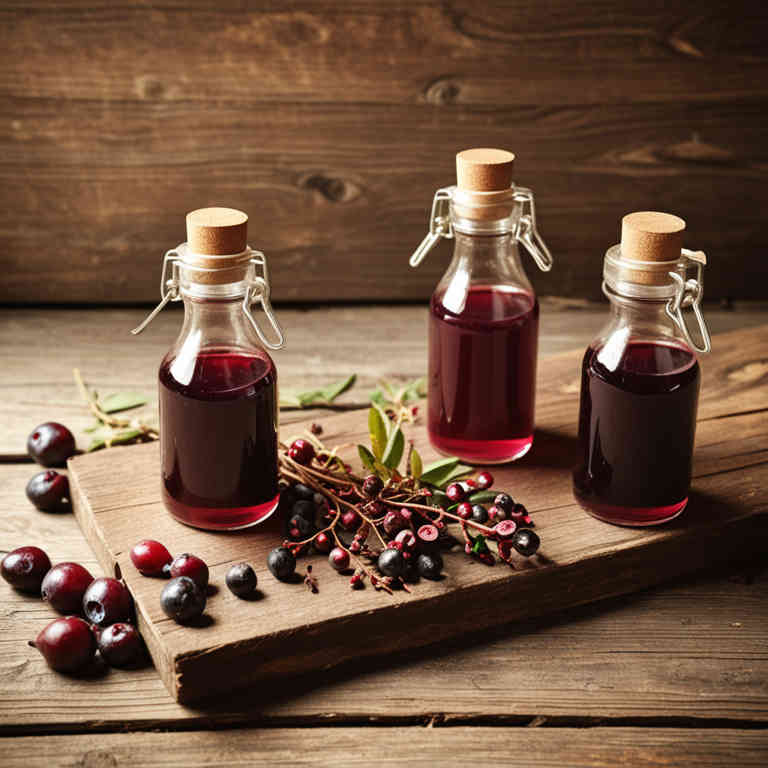Vaccinium myrtillus syrup for medicinal use

Vaccinium myrtillus syrup is a traditional herbal preparation made from the berries of the common bilberry plant.
It is commonly used in herbalism for its antioxidant and anti-inflammatory properties. The syrup is often prepared by extracting the berries with alcohol or water to concentrate their active compounds. In medicinal use, it is traditionally employed to support vision health, improve circulation, and treat urinary tract infections.
It is also believed to aid in reducing inflammation and enhancing immune function.
Uses
Vaccinium myrtillus syrup has been used to treat respiratory conditions such as coughs, bronchitis, and asthma due to its expectorant and anti-inflammatory properties.
Historically, it was valued in traditional medicine by indigenous peoples of the northern hemisphere, who used the berries and leaves to soothe sore throats and reduce fever. In modern times, the syrup is often found in herbal remedies and is appreciated for its potential to support immune function and alleviate symptoms of colds and flu. Its popularity has grown due to increasing interest in natural and plant-based treatments for common ailments.
However, it is important to consult a healthcare professional before using it, especially for prolonged periods or in combination with other medications.
Benefits
Vaccinium myrtillus syrup has health benefits such as supporting respiratory health, boosting the immune system, and promoting digestive wellness.
It is traditionally used to alleviate symptoms of coughs, colds, and bronchitis due to its expectorant properties. The syrup contains antioxidants that help reduce inflammation and protect cells from oxidative stress. It may also aid in improving circulation and reducing fatigue.
This herbal preparation is often recommended for its natural approach to supporting overall wellness.
Constituents
Vaccinium myrtillus syrup active constituents include anthocyanins, flavonoids, proanthocyanidins, and phenolic acids.
These compounds are known for their antioxidant and anti-inflammatory properties. Anthocyanins contribute to the syrup's deep red color and are associated with improved cardiovascular health. Flavonoids support immune function and may help reduce oxidative stress in the body.
The combination of these active constituents makes Vaccinium myrtillus syrup beneficial for respiratory and circulatory health.
Preparation
To make Vaccinium myrtillus syrup, first gather fresh or dried blueberries (Vaccinium myrtillus) and clean them thoroughly.
Next, place the blueberries in a saucepan and add enough water to cover them by about an inch. Bring the mixture to a boil, then reduce the heat and let it simmer for about 15-20 minutes until the berries are softened and the liquid has reduced slightly. Strain the mixture through a fine mesh strainer or cheesecloth to remove the solids.
Finally, mix the strained liquid with an equal amount of sugar and let it simmer gently for another 10-15 minutes until it thickens into a syrup consistency.
Side Effects
Vaccinium myrtillus syrup may lead to gastrointestinal discomfort such as nausea, vomiting, and diarrhea in some individuals.
It may also cause allergic reactions in people sensitive to the plant species, including symptoms like rash, itching, or swelling. Prolonged use could result in liver toxicity, especially in individuals with pre-existing liver conditions. It is important to consult a healthcare provider before use, particularly for children, pregnant women, or those on other medications.
Always follow the recommended dosage to minimize the risk of adverse effects.